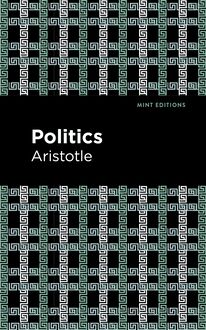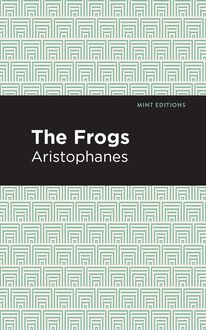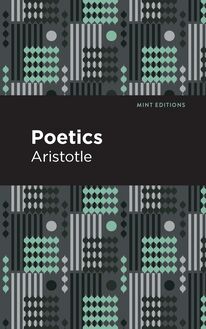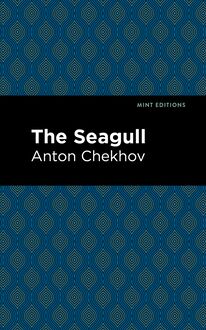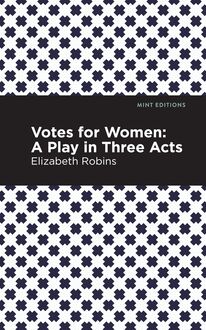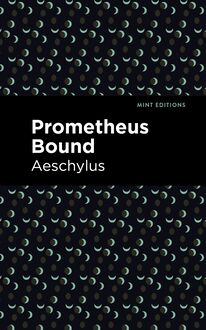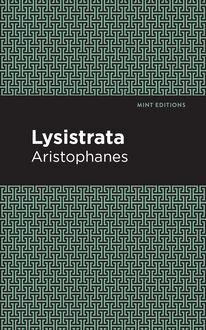-
 Univers
Univers
-
 Ebooks
Ebooks
-
 Livres audio
Livres audio
-
 Presse
Presse
-
 Podcasts
Podcasts
-
 BD
BD
-
 Documents
Documents
-
- Cours
- Révisions
- Ressources pédagogiques
- Sciences de l’éducation
- Manuels scolaires
- Langues
- Travaux de classe
- Annales de BEP
- Etudes supérieures
- Maternelle et primaire
- Fiches de lecture
- Orientation scolaire
- Méthodologie
- Corrigés de devoir
- Annales d’examens et concours
- Annales du bac
- Annales du brevet
- Rapports de stage
La lecture à portée de main
Vous pourrez modifier la taille du texte de cet ouvrage
Découvre YouScribe en t'inscrivant gratuitement
Je m'inscrisDécouvre YouScribe en t'inscrivant gratuitement
Je m'inscrisEn savoir plus
Vous pourrez modifier la taille du texte de cet ouvrage
En savoir plus

Description
“Chekhov, speaking simply and never otherwise than as an artist and a humane man, shows us in fullness and plenitude the mystery of our lives.”—Eudora Welty
“What writers influenced me as a young man? Chekhov! As a dramatist? Chekhov! As a story writer? Chekhov!”-Tennessee Williams
The Seagull is Anton Chekhov’s brilliant four-act play that is considered a monumental work of drama, and one of the most sublime literary examinations of the complexities of love and friendship. First performed over a century ago, this play remains one of the most widely staged productions throughout the world.
The four protagonists in The Seagull are all artists; Trigorin is a well-established writer, Arkadina is a renowned yet aging actress, her son Treplev is a struggling writer, and Nina is a young aspiring actress who is in love with Treplev. Success in love and in their art is a shared intent, yet within the play each character experiences an existential crisis in the darkness of unrequited love. With its play-within-a-play, its nods to Shakespeare, and intimate and profound character portrayals, this is an essential read for all serious students of drama and Russian literature.
With an eye-catching new cover, and professionally typeset manuscript, this edition of The Seagull is both modern and readable.
Sujets
Informations
| Publié par | Mint Editions |
| Date de parution | 17 novembre 2020 |
| Nombre de lectures | 0 |
| EAN13 | 9781513273198 |
| Langue | English |
| Poids de l'ouvrage | 3 Mo |
Informations légales : prix de location à la page 0,0250€. Cette information est donnée uniquement à titre indicatif conformément à la législation en vigueur.
Extrait
The Seagull
Anton Chekhov
The Seagull was first published in 1896.
This edition published by Mint Editions 2020.
ISBN 9781513266251 | E-ISBN 9781513273198
Published by Mint Editions®
minteditionbooks.com
Publishing Director: Jennifer Newens
Project Manager: Gabrielle Maudiere
Design & Production: Rachel Lopez Metzger
Translated by: Larissa Volokhonsky, Richard Nelson and Richard Pevear
Typesetting: Westchester Publishing Services
C ONTENTS Act I Act II Act III Act IV
C HARACTERS
I RINA A BKADINA , an actress
C ONSTANTINE T REPLIEFF , her son
P ETER S ORIN , her brother
N INA Z ARIETCHNAYA , a young girl, the daughter of a rich landowner
I LIA S HAMRAEFF , the manager of S ORIN ’s estate
P AULINA , his wife
M ASHA , their daughter
B ORIS T RIGORIN , an author
E UGENE D ORN , a doctor
S IMON M EDVIEDENKO , a schoolmaster
J ACOB , a workman
A C OOK
A M AIDSERVANT
The scene is laid on S ORIN ’ S estate. Two years elapse between the third and fourth acts .
A CT I
The scene is laid in the park on S ORIN ’ S estate. A broad avenue of trees leads away from the audience toward a lake which lies lost in the depths of the park. The avenue is obstructed by a rough stage, temporarily erected for the performance of amateur theatricals, and which screens the lake from view. There is a dense growth of bushes to the left and right of the stage. A few chairs and a little table are placed in front of the stage. The sun has just set. J ACOB and some other workmen are heard hammering and coughing on the stage behind the lowered curtain .
M ASHA and M EDVIEDENKO come in from the left, returning from a walk.
M EDVIEDENKO : Why do you always wear mourning?
M ASHA : I dress in black to match my life. I am unhappy.
M EDVIEDENKO : Why should you be unhappy? [ Thinking it over ] I don’t understand it. You are healthy, and though your father is not rich, he has a good competency. My life is far harder than yours. I only have twenty-three roubles a month to live on, but I don’t wear mourning. [ They sit down ].
M ASHA : Happiness does not depend on riches; poor men are often happy.
M EDVIEDENKO : In theory, yes, but not in reality. Take my case, for instance; my mother, my two sisters, my little brother and I must all live somehow on my salary of twenty-three roubles a month. We have to eat and drink, I take it. You wouldn’t have us go without tea and sugar, would you? Or tobacco? Answer me that, if you can.
M ASHA : [ Looking in the direction of the stage ] The play will soon begin.
M EDVIEDENKO : Yes, Nina Zarietchnaya is going to act in Treplieff’s play. They love one another, and their two souls will unite to-night in the effort to interpret the same idea by different means. There is no ground on which your soul and mine can meet. I love you. Too restless and sad to stay at home, I tramp here every day, six miles and back, to be met only by your indifference. I am poor, my family is large, you can have no inducement to marry a man who cannot even find sufficient food for his own mouth.
M ASHA : It is not that. [ She takes snuff] I am touched by your affection, but I cannot return it, that is all. [ She offers him the snuff-box ] Will you take some?
M EDVIEDENKO : No, thank you. [ A pause ]
M ASHA : The air is sultry; a storm is brewing for to-night. You do nothing but moralise or else talk about money. To you, poverty is the greatest misfortune that can befall a man, but I think it is a thousand times easier to go begging in rags than to—You wouldn’t understand that, though.
S ORIN leaning on a cane, and T REPLIEFF come in.
S ORIN : For some reason, my boy, country life doesn’t suit me, and I am sure I shall never get used to it. Last night I went to bed at ten and woke at nine this morning, feeling as if, from oversleep, my brain had stuck to my skull. [ Laughing ] And yet I accidentally dropped off to sleep again after dinner, and feel utterly done up at this moment. It is like a nightmare.
T REPLIEFF : There is no doubt that you should live in town. [ He catches sight of M ASHA and M EDVIEDENKO ] You shall be called when the play begins, my friends, but you must not stay here now. Go away, please.
S ORIN : Miss Masha, will you kindly ask your father to leave the dog unchained? It howled so last night that my sister was unable to sleep.
M ASHA : You must speak to my father yourself. Please excuse me; I can’t do so. [ To M EDVIEDENKO ] Come, let us go.
M EDVIEDENKO : You will let us know when the play begins?
M ASHA and M EDVIEDENKO go out.
S ORIN : I foresee that that dog is going to howl all night again. It is always this way in the country; I have never been able to live as I like here. I come down for a month’s holiday, to rest and all, and am plagued so by their nonsense that I long to escape after the first day. [ Laughing ] I have always been glad to get away from this place, but I have been retired now, and this was the only place I had to come to. Willy-nilly, one must live somewhere.
J ACOB : [ To T REPLIEFF ] We are going to take a swim, Mr. Constantine.
T REPLIEFF : Very well, but you must be back in ten minutes.
J ACOB : We will, sir.
T REPLIEFF : [ Looking at the stage ] Just like a real theatre! See, there we have the curtain, the foreground, the background, and all. No artificial scenery is needed. The eye travels direct to the lake, and rests on the horizon. The curtain will be raised as the moon rises at half-past eight.
S ORIN : Splendid!
T REPLIEFF : Of course the whole effect will be ruined if Nina is late. She should be here by now, but her father and stepmother watch her so closely that it is like stealing her from a prison to get her away from home. [ He straightens S ORIN ’ S collar ] Your hair and beard are all on end. Oughtn’t you to have them trimmed?
S ORIN : [ Smoothing his beard ] They are the tragedy of my existence. Even when I was young I always looked as if I were drunk, and all. Women have never liked me. [ Sitting down ] Why is my sister out of temper?
T REPLIEFF : Why? Because she is jealous and bored. [ Sitting down beside S ORIN ] She is not acting this evening, but Nina is, and so she has set herself against me, and against the performance of the play, and against the play itself, which she hates without ever having read it.
S ORIN : [ Laughing ] Does she, really?
T REPLIEFF : Yes, she is furious because Nina is going to have a success on this little stage. [ Looking at his watch ] My mother is a psychological curiosity. Without doubt brilliant and talented, capable of sobbing over a novel, of reciting all Nekrasoff’s poetry by heart, and of nursing the sick like an angel of heaven, you should see what happens if any one begins praising Duse to her! She alone must be praised and written about, raved over, her marvellous acting in “La Dame aux Camelias” extolled to the skies. As she cannot get all that rubbish in the country, she grows peevish and cross, and thinks we are all against her, and to blame for it all. She is superstitious, too. She dreads burning three candles, and fears the thirteenth day of the month. Then she is stingy. I know for a fact that she has seventy thousand roubles in a bank at Odessa, but she is ready to burst into tears if you ask her to lend you a penny.
S ORIN : You have taken it into your head that your mother dislikes your play, and the thought of it has excited you, and all. Keep calm; your mother adores you.
T REPLIEFF : [ Pulling a flower to pieces ] She loves me, loves me not; loves—loves me not; loves—loves me not! [ Laughing ] You see, she doesn’t love me, and why should she? She likes life and love and gay clothes, and I am already twenty-five years old; a sufficient reminder to her that she is no longer young. When I am away she is only thirty-two, in my presence she is forty-three, and she hates me for it. She knows, too, that I despise the modern stage. She adores it, and imagines that she is working on it for the benefit of humanity and her sacred art, but to me the theatre is merely the vehicle of convention and prejudice. When the curtain rises on that little three-walled room, when those mighty geniuses, those high-priests of art, show us people in the act of eating, drinking, loving, walking, and wearing their coats, and attempt to extract a moral from their insipid talk; when playwrights give us under a thousand different guises the same, same, same old stuff, then I must needs run from it, as Maupassant ran from the Eiffel Tower that was about to crush him by its vulgarity.
S ORIN : But we can’t do without a theatre.
T REPLIEFF : No, but we must have it under a new form. If we can’t do that, let us rather not have it at all. [ Looking at his watch ] I love my mother, I love her devotedly, but I think she leads a stupid life. She always has this man of letters of hers on her mind, and the newspapers are always frightening her to death, and I am tired of it. Plain, human egoism sometimes speaks in my heart, and I regret that my mother is a famous actress. If she were an ordinary woman I think I should be a happier man. What could be more intolerable and foolish than my position, Uncle, when I find myself the only nonentity among a crowd of her guests, all celebrated authors and artists? I feel that they only endure me because I am her son. Personally I am nothing, nobody. I pulled through my third year at college by the skin of my teeth, as they say. I have neither money nor brains, and on my passport you may read that I am simply a citizen of Kiev. So was my father, but he was a well-known actor. When the celebrities that frequent my mother’s drawing-room deign to notice me at all, I know they only look at me to measure my insignificance; I read their thoughts, and suffer from humiliation.
S ORIN : Tell me, by the way, what is Trigorin like? I can’t understand him, he is always so silent.
T REPLIEFF : Trigorin is clever, simple, well-mannered, and a little
-
 Univers
Univers
-
 Ebooks
Ebooks
-
 Livres audio
Livres audio
-
 Presse
Presse
-
 Podcasts
Podcasts
-
 BD
BD
-
 Documents
Documents
-
Jeunesse
-
Littérature
-
Ressources professionnelles
-
Santé et bien-être
-
Savoirs
-
Education
-
Loisirs et hobbies
-
Art, musique et cinéma
-
Actualité et débat de société
-
Jeunesse
-
Littérature
-
Ressources professionnelles
-
Santé et bien-être
-
Savoirs
-
Education
-
Loisirs et hobbies
-
Art, musique et cinéma
-
Actualité et débat de société
-
Actualités
-
Lifestyle
-
Presse jeunesse
-
Presse professionnelle
-
Pratique
-
Presse sportive
-
Presse internationale
-
Culture & Médias
-
Action et Aventures
-
Science-fiction et Fantasy
-
Société
-
Jeunesse
-
Littérature
-
Ressources professionnelles
-
Santé et bien-être
-
Savoirs
-
Education
-
Loisirs et hobbies
-
Art, musique et cinéma
-
Actualité et débat de société
- Cours
- Révisions
- Ressources pédagogiques
- Sciences de l’éducation
- Manuels scolaires
- Langues
- Travaux de classe
- Annales de BEP
- Etudes supérieures
- Maternelle et primaire
- Fiches de lecture
- Orientation scolaire
- Méthodologie
- Corrigés de devoir
- Annales d’examens et concours
- Annales du bac
- Annales du brevet
- Rapports de stage
